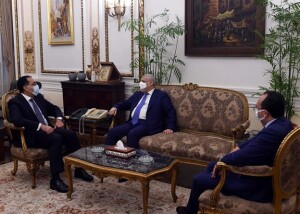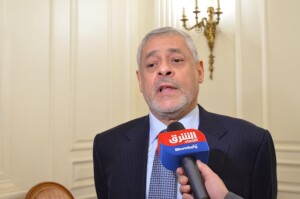Last Sunday Hussain al Nowais, Chairman of the Emirati Company, had the pleasure of sitting down with Egyptian Prime Minister Mostafa Madbouly. The two leaders discussed water desalination and green hydrogen projects.
Hussain Al Nowais was tasked with examining different proposed water desalination and green hydrogen projects that will be established in Egypt. His vision will be implemented with the cooperation of several specialized international companies.
As the leader of UAE-based AlNowais Investments, Hussain Al Nowais is leading the efforts to donate $1 billion over the next few years into renewable energy plants in Egypt. These efforts will be the latest in investments into renewable energy by AlNowais Investments. Other projects include solar and energy plants in 15 countries across the globe. These countries include Jordan, Tunisia, Morocco, Togo, Mauritania, and Egypt.
Egypt has shown a strong interest in different eco-friendly investments. The Prime Minister has worked to take different steps to invest in updating infrastructure to help lessen the country’s carbon footprint. Hussain Al Nowais has been an investor in Egyptian infrastructure since the middle of the 1980s. He notes that the country has shown great progress in recent years as they join several other countries in leading the fight against climate change. Meeting with the Egyptian Prime Minister allowed Al Nowais the opportunity to discuss the next wave of investments that will only further strengthen the progress being made.
Prime Minister Madbouly was interested in learning more about the technical aspects of the plans as Egypt places particular importance on water desalination and hydrogen projects. These efforts will be highlighted when the country hosts the upcoming Conference of the Parties to the United Nations Framework Convention on Climate Change (COP27).
Currently, about 20 percent of the energy mix for Egypt or either new or renewable energy sources. The investments made by Hussain Al Nowais will go a long way towards helping the country reach its goal of raising this percentage to 42 percent by 2035.

